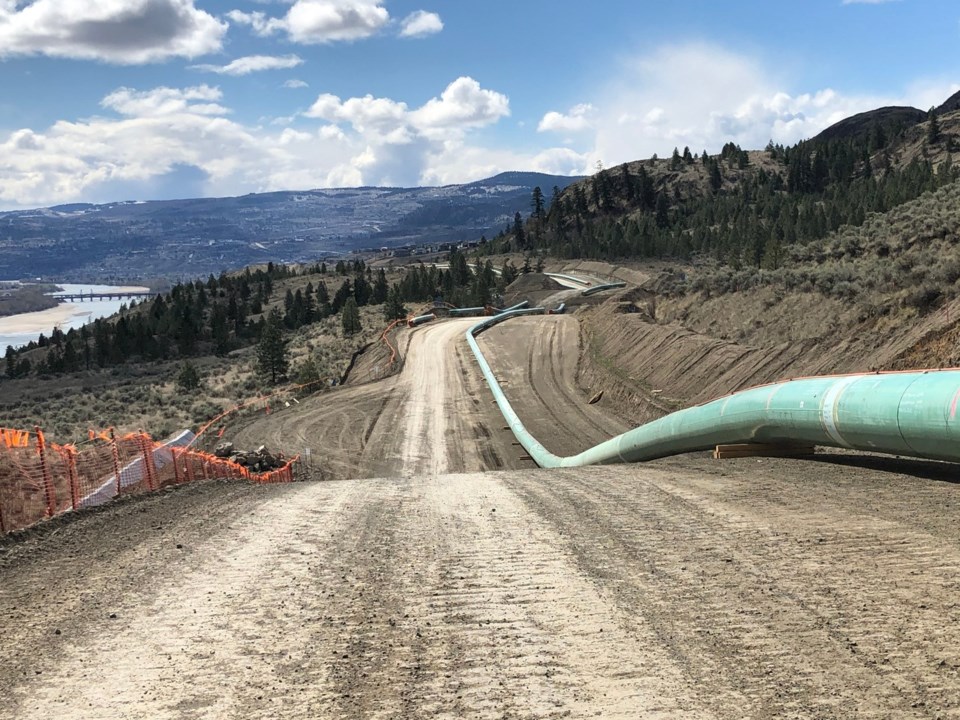A new report says the Trans Mountain pipeline will result in a net loss for the Canadian government.
The government's 2018 decision to acquire, expand, operate and eventually divest of the Trans Mountain assets will result in a net loss calculated on a Net Present Value (NPV basis), says the office of the federal parliamentary budget officer (PBO).
The PBO also said if the expansion was cancelled indefinitely after June 2022, Ottawa would need to write off more than $14 billion in assets, including sunk costs in capital expenditures for the expansion pipeline, as well as the portion of the goodwill related to the project.
"The net impact would result in a significant financial loss for the Government and would lead to the Trans Mountain Corporation no longer being a going concern," the update said.
Construction of the project has increased from $12.6 billion to $21.4 billion with an estimated mechanical completion date in late 2023.
The federal government previously announced a $10-billion loan guarantee for the project.
Since the acquisition, the present value of cost flow was pegged at $3.9 billion. The purchase price was $4.4 billion, which leaves a net present value of -$0.6 billion.
In April this year, Trans Mountain said its expansion project had officially hit the halfway mark.
The company says, as of March 2022, more than 412 km of pipe has been installed, 574 km of pipeline right of way stripped and graded, 471 km of pipe welded and 32 major trenchless crossings finished.
“We are proud to celebrate the halfway mark of the Trans Mountain Expansion Project. The way we are constructing this project reflects a new approach to building major projects in Canada," interim president Rob Van Walleghem said in a news release.
“I want to personally thank Ian Anderson, who retired earlier this month after a long tenure with the company. His leadership and guidance have made this milestone a reality.”
In February, it was revealed the project cost was estimated to be a whopping $21.4 billion, which is four times what the project was estimated to cost in 2013 when the project was still owned by Kinder Morgan.
The project has faced numerous delays and setbacks, including floods in November that forced the pipeline to shut down as a precautionary measure.
Glacier Media's Business In Vancouver reported in January, Trans Mountain's third-quarter financial reports indicated the project was only half-built but that 71 per cent of the $12.6-billion capital budget was spent.
In 2013, Kinder Morgan estimated the pipeline twinning project at $5.4 billion, with an in-service date of December 2019.
The estimated capital cost has since increased four times — first to $6.8 billion, then $7.4 billion, and then $12.6 billion, after the Canadian government bought the pipeline from Kinder Morgan and assumed responsibility for completing the twinning project.
- with files from Nelson Bennett, Business In Vancouver



